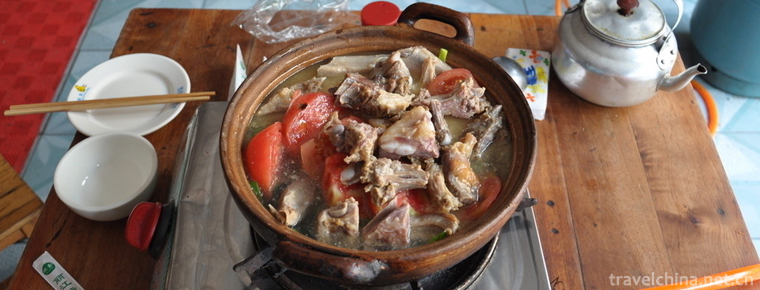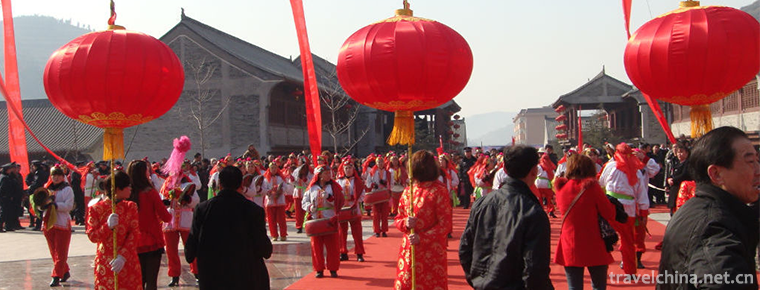steamed vermicelli roll
Intestinal powder originated in Luoding, Guangdong Province, has been spread throughout the country. According to geography (taste), it can be distinguished from the well-known Xiguan intestinal powder in Guangzhou, Hakka intestinal powder in Meizhou, Chaozhou Chaoshan intestinal powder, Hekou intestinal powder in Yunfu, Yunan capital intestinal powder and so on.
Intestinal powder originated in Luoding, Guangdong Province, has been spread throughout the country. According to geography (taste), it can be distinguished from the well-known ones such as Xiguan intestinal powder, Meizhou intestinal powder, Chaozhou intestinal powder, Yunfu River mouth intestinal powder, Yunan Capital intestinal powder, etc. And this traditional cuisine has already appeared in the Tang Dynasty. It originated from the city of Luoding (today's Guangdong city). At first, it was the Tang Dynasty's oil-flavored bamboo paste. Huineng and Huiji had no intention of creating it. Because the oil-flavored bamboo paste created by Huineng and Huiji was too thin to be divided into pieces as before, they could only be shoveled back into a pile and then divided into sections or not. This is the origin of the method of sausage powder, but at that time it was not called sausage powder. In order to distinguish it from the original oil-flavored steamed bread, people call it oil-flavored steamed bread. Since the disaster has not been alleviated, Huiji personally participated in the research work of improving the oil-flavored steamed bread. After that, Baoliang, Huineng and other disciples were arranged to teach the new oil-flavored steamed bread to the people of Fangzhou. This kind of oil-flavored steamed bread soon spread in the land of Fangzhou. Hui Neng was very grateful and helped to create a new name in the process of communication, called Hui Ji. Because Hui Ji is originated from dragon niche, it is also called "dragon niche" in the locals.
Guangzhou's intestinal powder is transparent, its mouth is Q, its sauce is soy sauce, and vegetable is lettuce. Chaozhou's rice noodle is white and tastes sweet and glutinous. Most of the sauce is peanut oil and peanut butter.
During the reign of Qianlong, when Emperor Qianlong visited the south of the Yangtze River, he was deluded by Ji Xiaolan, the Minister of Eating Guests, and specially transferred to Luoding Prefecture to eat Longgang. When eating this kind of "long enough, tender and slippery" dragon's niches, Qian Long praised them and said: "this sauce is not a glutinous rice cake, but rather like a pig's intestines. * it's better to call it" rice noodle ". Later, he returned to the capital city, and he never forgot Luoding's sausage powder, which spread in Guangdong, more and more sausage powder stores.
At present, sausage flour is one of the famous traditional snacks in Guangdong. Sausage flour is salty and sweet. The fillings of salted sausage flour mainly include pork, beef, shrimp, pork liver and so on. The fillings of sweet sausage flour are mainly sugar-soaked vegetables and fruits, then mixed with fried sesame. Intestinal flour is divided into two main types according to its genre. One is bran flour, the other is drawer flour. Because of the different tools used, the resulting intestinal flour is different.
Bra sausage powder tastes mainly fillings (most of the sausage paste is made of sticky rice flour followed by clear noodles, millet flour and raw meal). Drawer type meal powder (made of pure rice pulp) is the main ingredient to taste rice flour and sauce seasoning.
Rice flour is rich in protein, starch, trace elements, vitamins and so on.
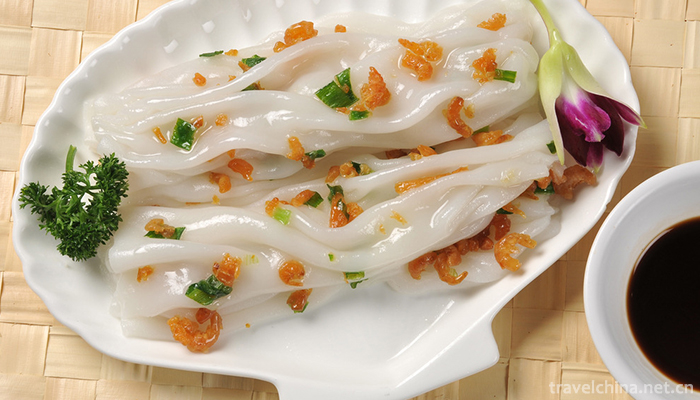
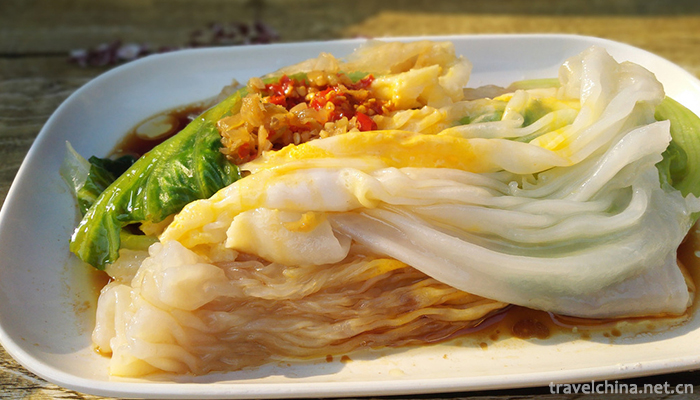
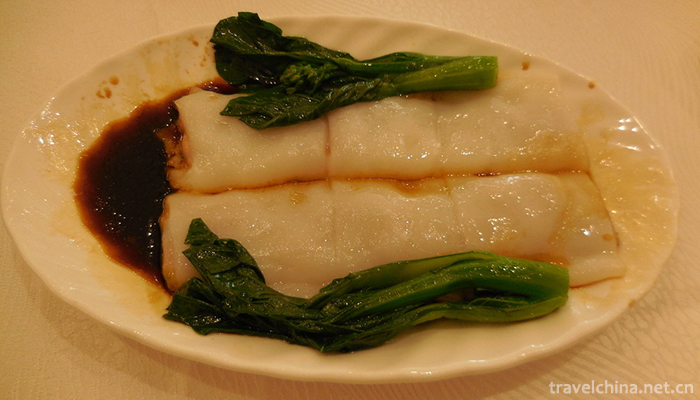
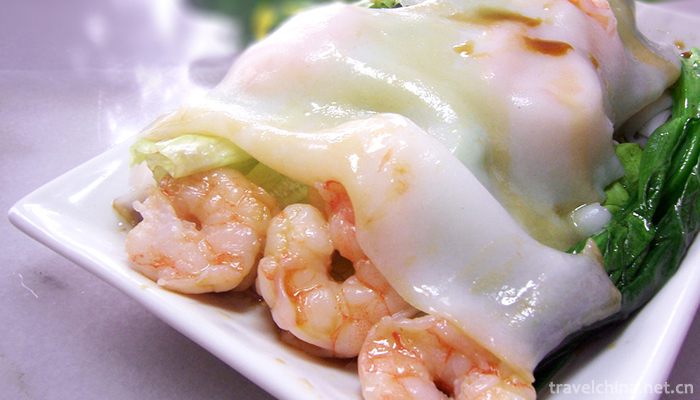
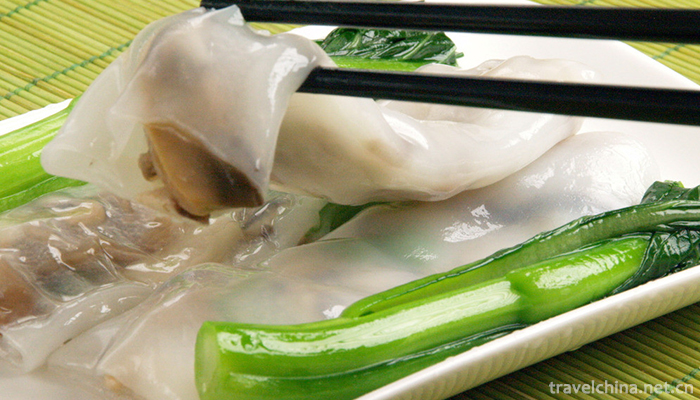
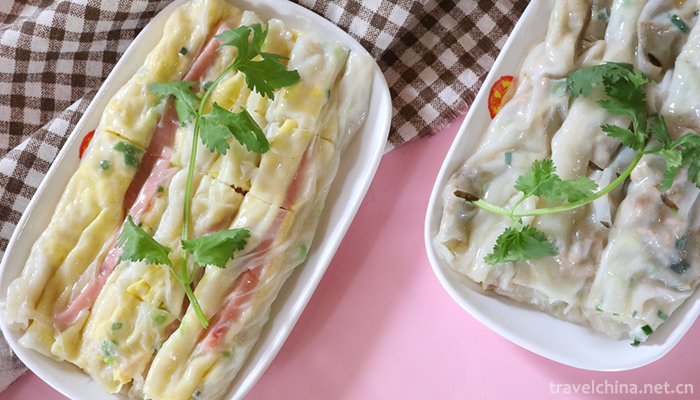
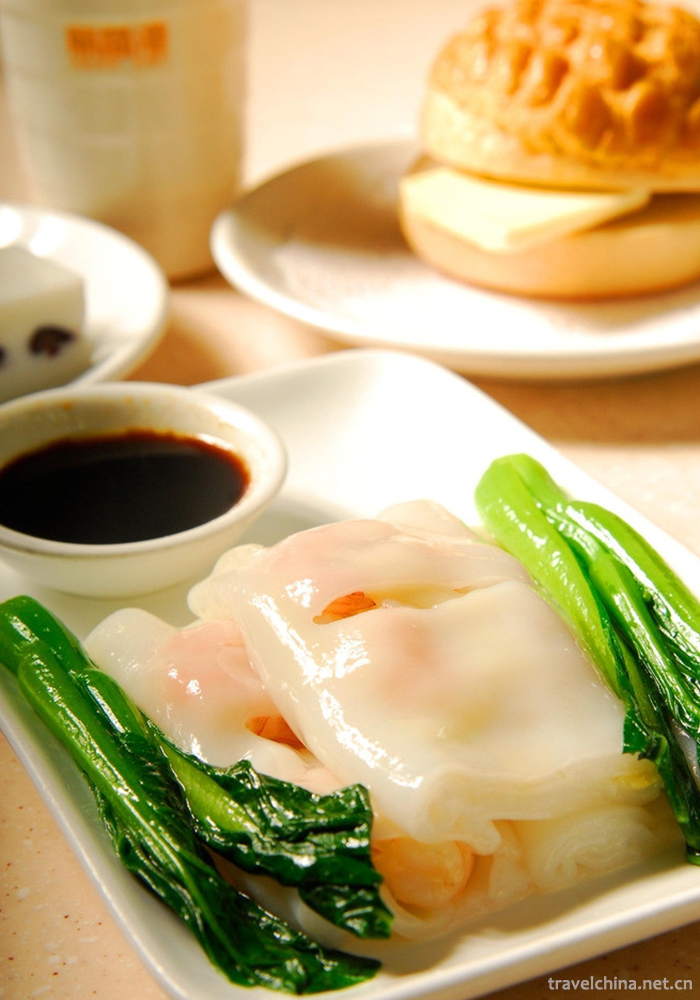
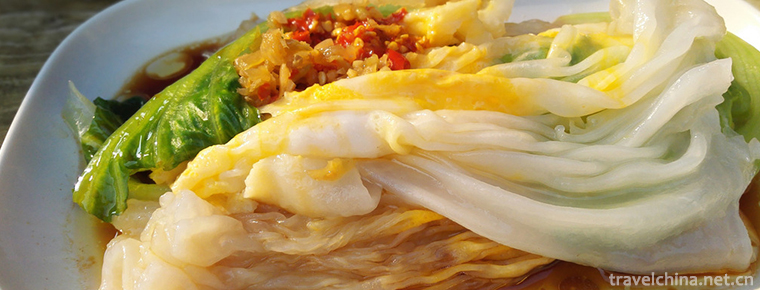
steamed vermicelli roll
-
Lijiang bacon pork
Views: 370 Time 2018-10-17 -
Xixi National Wetland Park
Xixi National Wetland Park is located in the west of Hangzhou City, Zhejiang Province. It is only 6 kilometers away from Wulin Gate, the main city of Hangzhou, and 5 kilometers away from West Lake.
Views: 211 Time 2018-12-07 -
Mandarin Oriental Pudong Shanghai
Mandarin Oriental Hotel Group is an international hotel investment and management group. It owns top luxury hotels and resorts all over the world.
Views: 573 Time 2018-12-16 -
The 70th Anniversary of the Founding of New China
On January 11, 2019, the Third Plenary Session of the 19th Central Discipline Inspection Committee of the Communist Party of China opened in Beijing. Xi Jinping, General Secretary of the CPC Central
Views: 617 Time 2019-05-04 -
Herbal tea
Herbal tea is the general name of traditional Chinese herbal medicinal plant beverage. Guangdong herbal tea is the representative of traditional Chinese herbal tea culture. Herbal tea is a kind of bev
Views: 212 Time 2019-05-13 -
woolen needlepoint tapestry
Cashmere embroidery, also known as wool embroidery, is one of the emerging traditional arts and crafts in Shanghai. It is a kind of art and crafts crystallization embroidered on special mesh linen clo
Views: 122 Time 2019-06-14 -
Xiushan Festive Lantern
Xiushan lantern is an important school of lantern art in southwest China. It is a folk cultural phenomenon and folk performing art that integrates religion, folk custom, singing and dancing, acrobatic
Views: 92 Time 2019-07-08 -
Neutralization Festival
Zhonghe Festival, a traditional Chinese folk festival, is on the second day of February, but the date at that time was on the first day of February. With the evolution of history, it was changed to th
Views: 389 Time 2019-08-03 -
Fallen Drama zhui zi xi
Fallen Drama, a traditional drama in Shenze County of Hebei Province and Suzhou City of Anhui Province, is one of the national intangible cultural heritages.
Views: 251 Time 2019-08-16 -
China University of Labor Relations
China Institute of Industrial Relations (China University of Labor Relations) All China Federation of trade unions Ordinary Institutions of higher learning It is jointly built by the all China Federat
Views: 170 Time 2019-12-20 -
Nanchong hydrology
Nanchong is rich in precipitation. The average annual precipitation is 1000 mm, excluding evaporation, the annual total water is about 4.191 billion cubic meters, and the average annual runoff depth is about 313 mm. The distribution of runoff depth is generally
Views: 364 Time 2020-12-17 -
Administrative division of Yibin
Yibin City has 10 county-level administrative divisions (Municipal District 3, county 7), 136 township level administrative divisions (street 14, town 105, township 17). It covers an area of 13271 square kilometers and has a population of 5.52 million. Yibin Municipal
Views: 331 Time 2020-12-18
